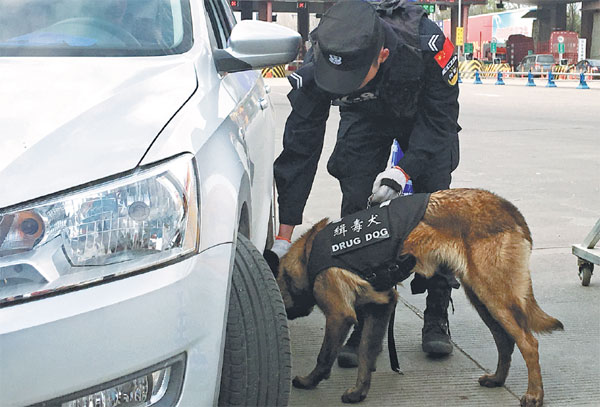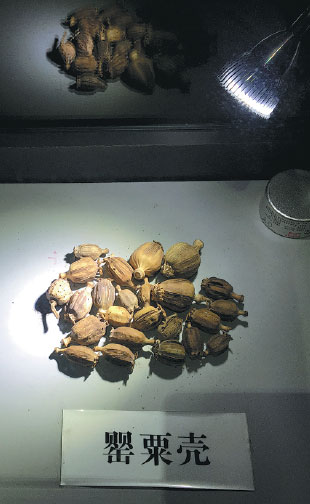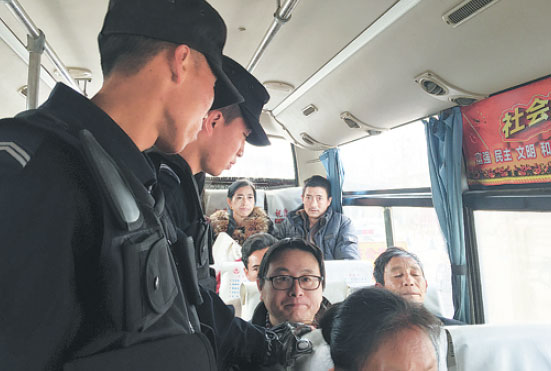Drug hotspot vows to clean up its act
Updated: 2015-12-30 08:36
By Luo Wangshu(China Daily)
|
||||||||
Authorities in a small town in southwestern China are intensifying efforts to crack down on a long-standing-problem, as Luo Wangshu reports from Xichang, Liangshan Yi autonomous prefecture, Sichuan province.
In September, at the start of the fall semester, Hua Yong, deputy principal of Xichang No 9 Primary School, was faced with one of the most difficult situations of his teaching career.
A group of police officers had arrived to take a first grader to the police station, because the 7-year-old boy's grandmother, his sole guardian, had been detained on charges of selling heroin.
|
A narcotics officer leads a sniffer dog to check a vehicle near an expressway toll gate in Xichang, Liangshan Yi autonomous prefecture, Sichuan province, on Dec 18. Photos by Luo Wangshu / China Daily |
|
Local residents planted these opium poppies, which were later confiscated by the public security authorities in Xichang. |
|
Narcotics officers carry out a regular check on an intercity bus at a toll gate in Xichang on Dec 18. |
The boy's parents, who are drug users and dealers, were already in jail, so the police wanted to take the boy into protective custody while they searched for another relative to be his guardian. Failing that, the boy would be transferred to the child services, Hua recalled.
"It was one of the toughest moments in my career as a primary school teacher," he said. "I couldn't let them take the poor boy to a dreary police station and witness his grandma locked up."
Eventually, the boy stayed in a school dormitory until an aunt offered to become his legal guardian.
Although shocking, the story is not an unusual one in the Liangshan Yi autonomous prefecture in southwestern Sichuan province. Despite decades of efforts to eradicate the problem in the poverty-stricken area, drug use, dealing and smuggling are still rampant.
A convenient pathway
Liangshan has a population of 5.12 million - more than half are members of the Yi ethnic group - and there are about 50,000 recorded drug users, according to Liang Xiaohui, vice-director of the local public security department.
Li Xianhui, deputy head of the China National Narcotics Control Commission, said the real number of drug users is far higher than those registered. However, even the official statistics show that one in every 100 residents uses drugs, far higher than the national figure.
According to the commission, there were 3.23 million registered drug users in China as of June, roughly one of every 500 people in the country.
Luo Liangqing, mayor of Liangshan prefecture, said the use of drugs has resulted in a health disaster and a rash of crimes across the region. In Liangshan, about 60 percent of public security cases and 70 percent of criminal cases are related to drugs or involve drug abuse.
"Liangshan, on the border with Yunnan province, is a pathway for drugs smuggling from the Golden Triangle to China's interior. The convenient geography has resulted in a drugs market in Liangshan," he said.
Drug dealers take advantage of the deprived population, such as pregnant women, minors and disabled people, and make them into drug couriers, or mules, he added.
The area also has a history of opium cultivation because it was once under the control of the Yi people, who believed that the use of opium indicated refinement and often entertained guests with the drug.
Privileged people, mainly the wealthy or those with high social status, enjoyed opium, which the Yi also regarded as a treatment for illness, seemingly unaware of the harm it caused.
'Drugs are a devil'
"It's wrong for people to think of drugs as some kind of cure. Drugs are a devil that nearly ruined my family," said Liu, a drug user who would only give her family name.
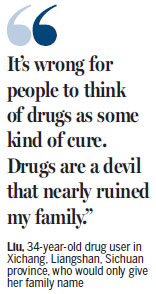
Liu, 34, and her husband Zhao, 36, once owned a restaurant in Xichang. The Liangshan natives lived a good life until they became involved with drugs. The habit cost them their apartment and savings, a total of about 1 million yuan ($154,000).
In 2010, Liu was pregnant and looking forward to a new chapter in their lives, when Zhao took his first hit of heroin.
"Our good life burst like a bubble," Liu said.
Zhao said he had been naive: "My friend talked me into trying some. It was not a big deal here, really. I thought I knew many people who took drugs and still led a good life then. But I was wrong."
Liu discovered that Zhao was a drug addict shortly after their son was born. She was devastated.
"I tried every possible way to stop him - hiding the drugs, threatening to divorce him, throwing away his mobile phone to stop him seeing bad friends - but everything failed. He made promises, and I could tell that he really meant them, but the next day, when the drugs controlled him again, he broke his promises again and again," Liu said.
"I was so devastated that a horrible idea popped into my mind. I thought I should try drugs too, so when I success-fully demonstrated that I could quit after becoming hooked, it would be a good lesson and encouragement for him."
In 2013, Liu took heroin for the first time. She was addicted within a week.
"I've never got drugs out of my mind since then. Our family fell apart," she said.
"I closed the restaurant and left my son to my parents and parents-in-law. We hid in our apartment all day. Apart from using, all we could think about was finding more drugs or getting money to buy drugs. I didn't want to work. Actually, I didn't want anything at all, except drugs. It was a nightmare," she said.
The couple gradually ran out of money and fought bitterly, according to Zhao.
"At first, we spent about 4,000 to 5,000 yuan every month. But soon, we wanted more and spent thousands and thousands. Lacking an income, we had to use our savings. Money became tight," he said.
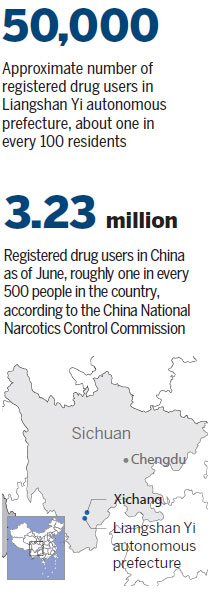
For Liu, life became unbearable. "Because money was tight, we had to cut down on the amount of drugs we bought, but we fought over the limited supply. I could not bear him having more, and he would not allow me to have another hit either," she said.
Eventually, they sold their apartment.
"We were broke, and we still are," Liu said. "Someone reported us, and last year we were detained and sent to the rehabilitation center."
In China, drug abusers are sent to a rehab center after being reported and found using twice.
"I guess my parents tipped off the police, but I have never asked them. I don't hate them for having me locked up. On the contrary, I am grateful. If not for them, I would never have had the courage to come to the rehab center and get clean," Liu said.
The couple has completed a compulsory six-month term at the rehab center and voluntarily moved into a community rehab center.
"We chose to live here because I am not fully confident about myself. If I went home, I am afraid I would use again. My son is 5 and he will go to elementary school next year. I want be able to pick him up from school every day with no one calling his parents drug addicts," Liu said.
Liu was one of 1,775 drug abusers sent to Xichang No 1 Compulsory Rehabilitation Center this year. Addicts must live at the center for six months, and after that they can chose to go home or move to another rehab center .
"We encourage them to spend as long as possible in the rehab center because it makes it easier for them to get totally clean," Xia Hongyu, vice-head of the center, said.
"Xichang is not only a drug-smuggling hub, but also a market. Drugs are cheaper here than in the surrounding areas because there are no transportation costs. That's attractive to the many drug users who live and trade here," he said.
A long battle
In the 1950s, the authorities launched a fierce crackdown on Xichang's opium trade, eventually eradicating the drug from the area. However, as the drug trade became more profitable globally in the 1980s, the problem resurfaced.
The local government has redoubled its efforts to tackle the trade.
"The enemy has grown so quickly that our work has not quite reached a turning point, said Liang from the public security department, who added that anti-drug operations have been successful in recent years.
He also said the operation has progressed from targeting low-level mules to chasing the heads of the gangs.
This year, the police have tackled 64 drug networks and 1,093 drug-related crimes, a rise of 61 percent from last year. They also apprehended 1,375 suspects - an increase of 52 percent from a year ago - including 78 heads of drug gangs and 40 "sponsors", people who fund the smuggling and distribution of narcotics for a percentage of the profits.
The regional authorities will raise the number of narcotics officers to 300 from 168 in the next two years, and 790 assistant officers will also be hired. Meanwhile, the county plans to increase anti-drug investment during the upcoming Five-Year Plan (2016-2020), and will spend more than 20 million yuan upgrading equipment and 2.5 million yuan to train more sniffer dogs.
The rise in officer numbers will ease some of the burden on local policemen, such as Wu Ke, who heads a team that checks vehicles at toll gates.
"We examine a few hundred cars at toll gates every day, 24/7. It never stops," he said. According to Wu, 2 pm to 8 pm is the best time to catch mules.
"They cross the border early in the morning, but the first vehicles don't arrive at the toll gate until 2 pm. The last ones arrive at 8 pm. The mules use a range of vehicles, from buses to minivans. We can't stop every single one, so we use our experience to identify suspects," he said. "For example, if they look nervous or act oddly, they are likely to be carrying drugs."
In January, Wu's team intercepted three mules when the police ordered a car to stop for a routine check. Spooked, the driver immediately turned around and attempted to speed off. Two men and a pregnant woman were arrested after about 2.7 kilos of heroin were discovered in the car.
"If they hadn't acted so awkwardly and run from the toll gate, we might not have noticed them," Wu said.
Spreading the message
Last year, Liangshan launched a combined anti-drugs and AIDS awareness campaigns in 1,706 schools across the prefecture, covering 420,000 students.
"Most students have two parents and four grandparents, and we hope they will spread our message to the older generation and help them avoid the scourge of drugs," said Hua, the deputy principal.
Contact the writer at luowangshu@chinadaily.com.cn
(China Daily 12/30/2015 page6)
- US-led air strikes kill IS leaders linked to Paris attacks
- DPRK senior party official Kim Yang Gon killed in car accident
- Former Israeli PM Olmert's jail term cut, cleared of main charge
- Japan, S. Korea reach deal on 'comfort women'
- More than 70 killed in Nigeria bombings, suicide attacks
- Argentina issues orange alert for heat wave

 Yearender: Chinese athletes of year
Yearender: Chinese athletes of year
 Yearender: Key words from popular China news stories in 2015
Yearender: Key words from popular China news stories in 2015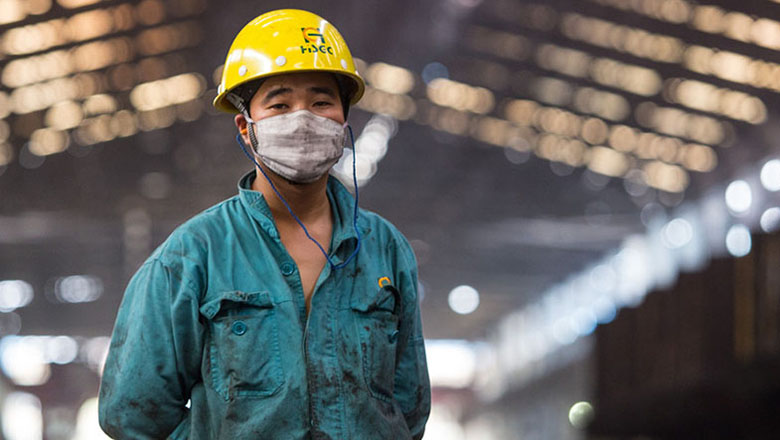
 Hangzhou shuts steel plant to improve air quality
Hangzhou shuts steel plant to improve air quality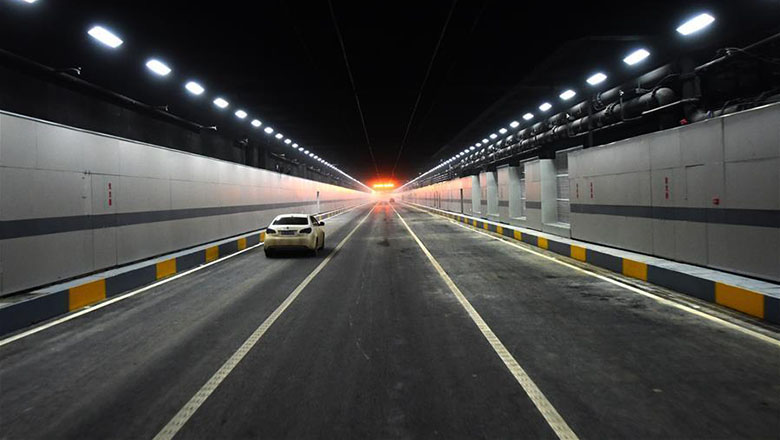
 China's longest tunnel under lake open to traffic
China's longest tunnel under lake open to traffic
 Top 10 policy changes in China in 2015
Top 10 policy changes in China in 2015
 Yearender 2015: Natural disasters
Yearender 2015: Natural disasters
 The world in photos: Dec 21 - 27
The world in photos: Dec 21 - 27
 Yearender: Film critics' top 10 Chinese films of 2015
Yearender: Film critics' top 10 Chinese films of 2015
Most Viewed
Editor's Picks

|

|

|

|

|

|
Today's Top News
Shooting rampage at US social services agency leaves 14 dead
Chinese bargain hunters are changing the retail game
Chinese president arrives in Turkey for G20 summit
Islamic State claims responsibility for Paris attacks
Obama, Netanyahu at White House seek to mend US-Israel ties
China, not Canada, is top US trade partner
Tu first Chinese to win Nobel Prize in Medicine
Huntsman says Sino-US relationship needs common goals
US Weekly

|

|
